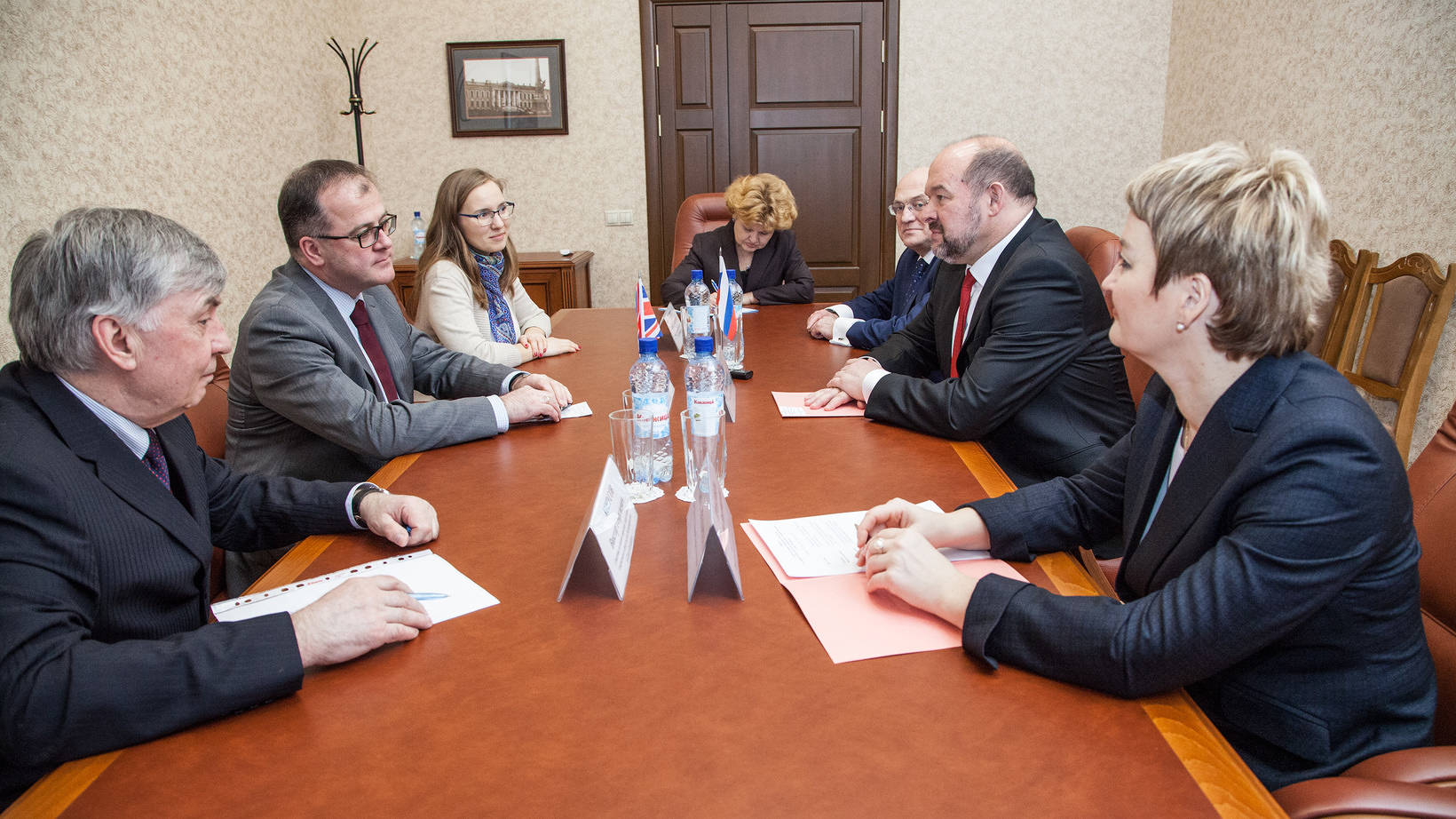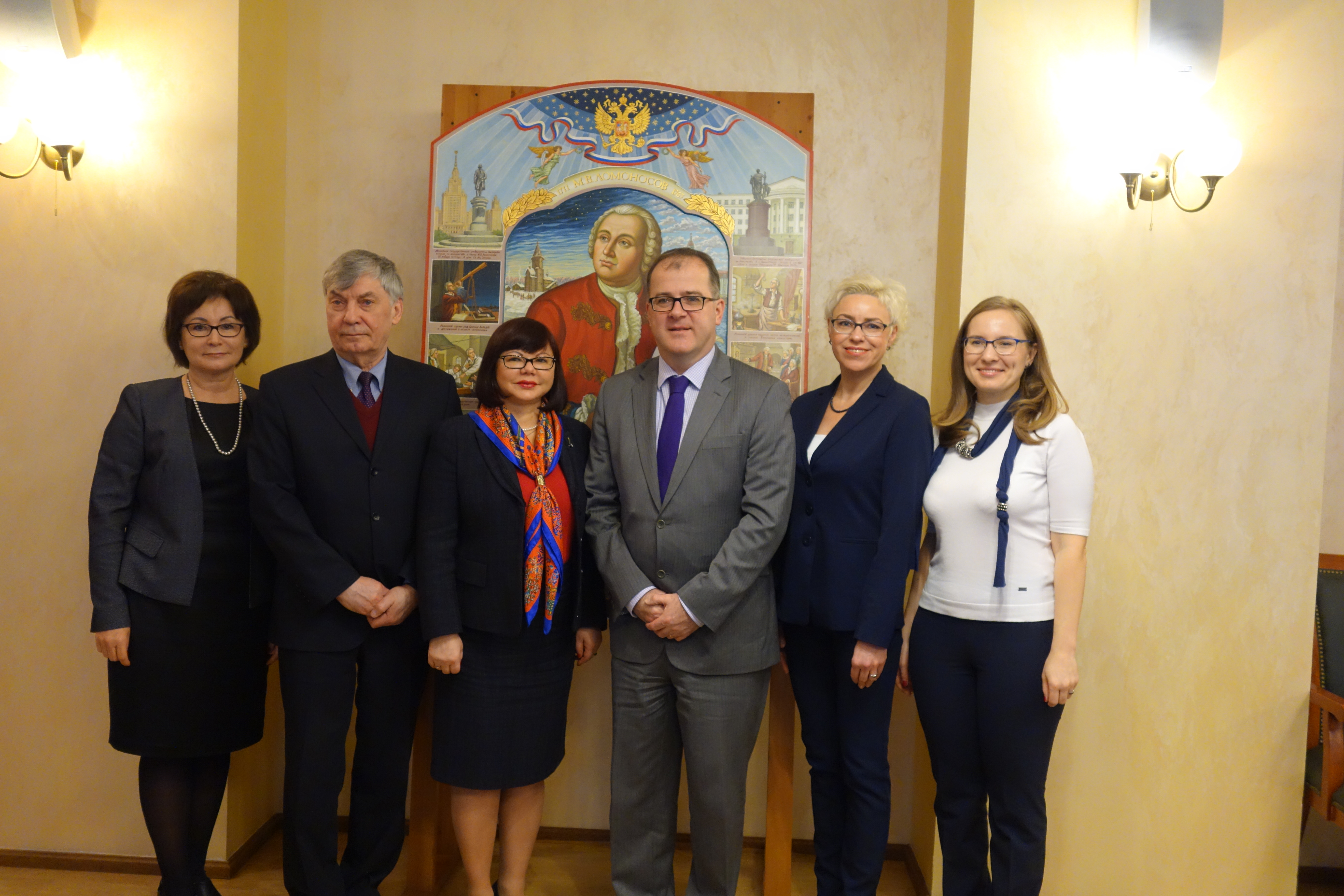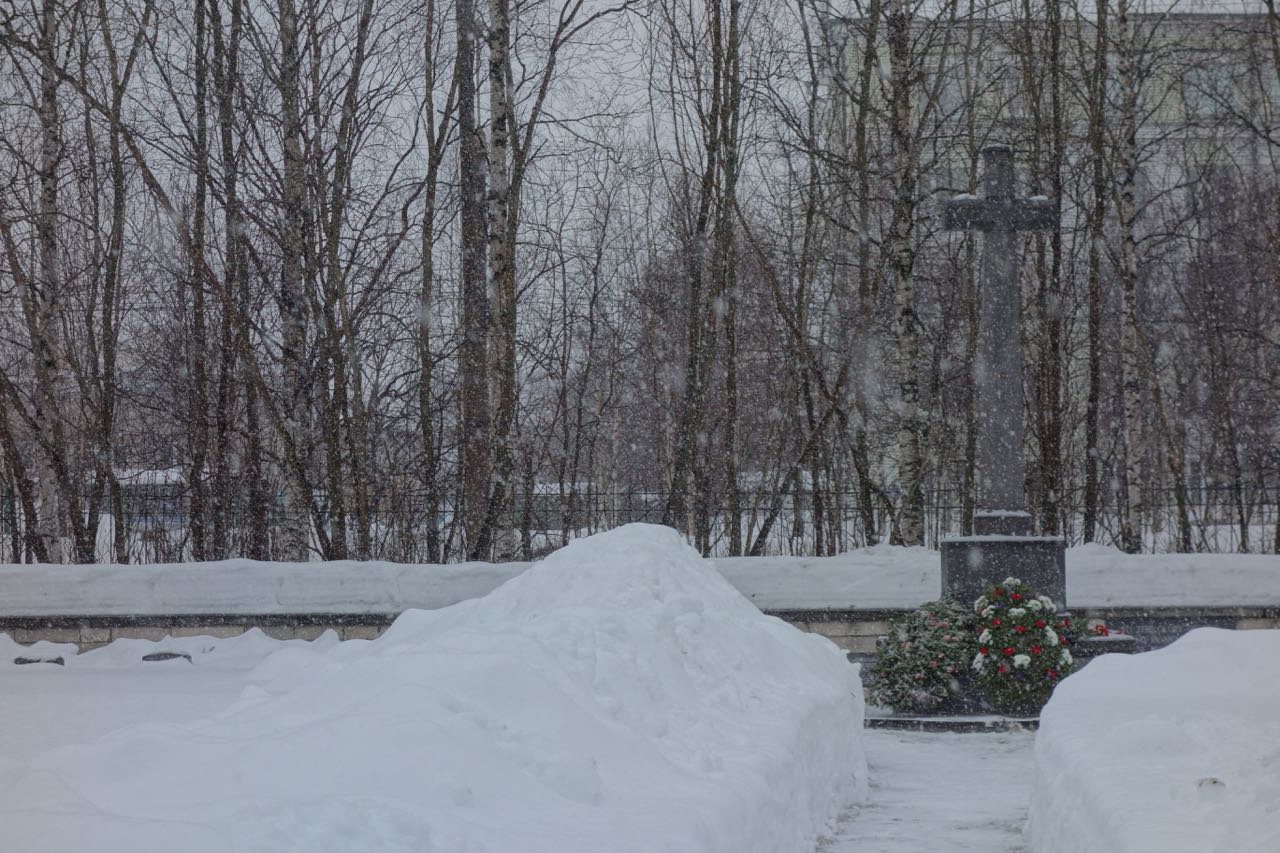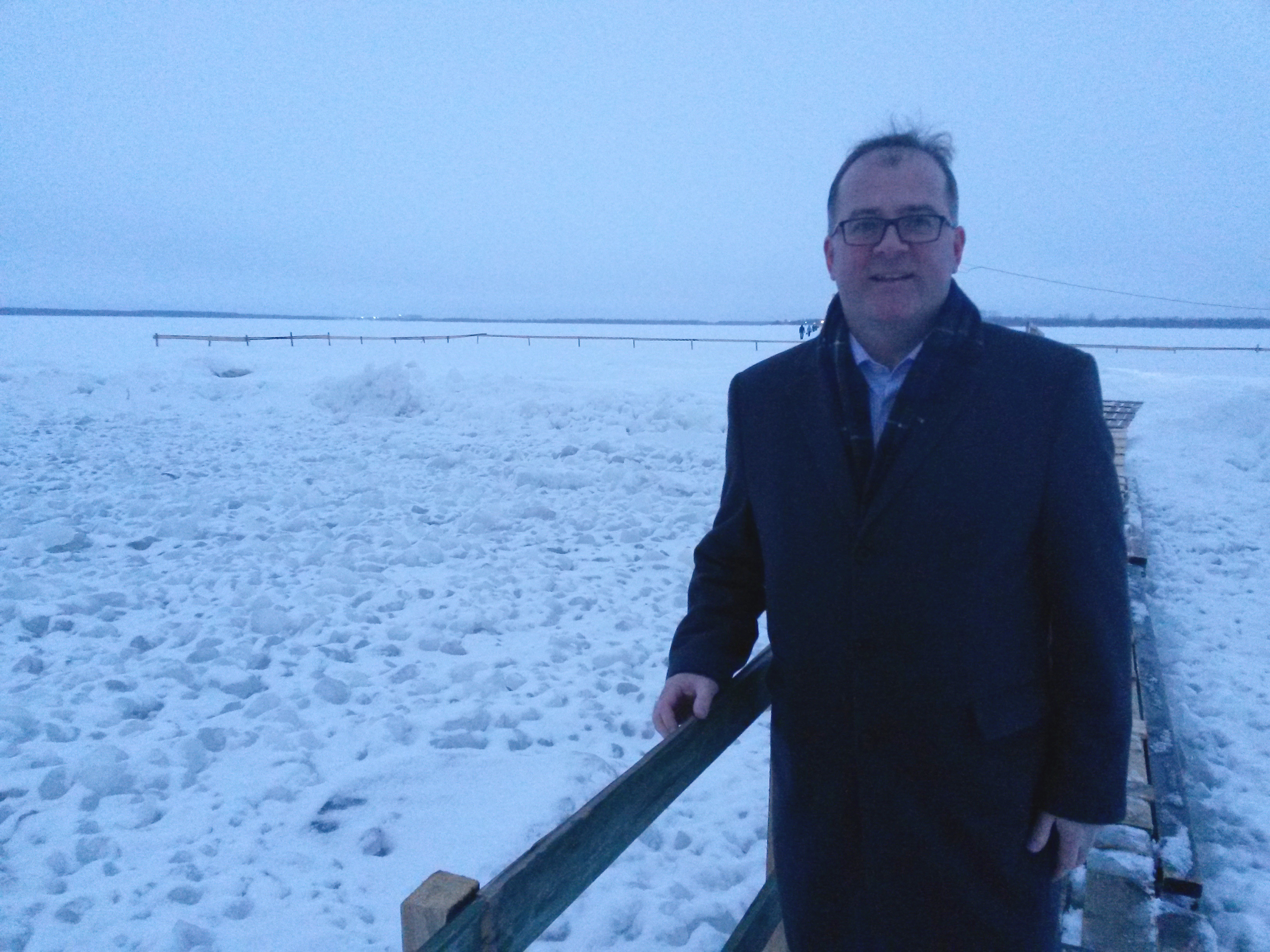10th March 2017
Farewell to Arkhangelsk
I have made over a dozen visits to Arkhangelsk since autumn 2013. It’s a very special place in Russia for the UK and I was keen to make one final visit before I leave Russia to thank our key contacts and underline our commitment to future friendship and engagement.
Visiting Arkhangelsk has been a highlight of my almost four years in Russia. It is a place with a rich history of contact with the UK dating all the way back to the arrival of Richard Chancellor in 1553. There was a large community of British merchants and timber traders in Arkhangelsk from the 19th century right up until the Russian Revolution. The later contribution made by our veterans during the Arctic Convoys of World War Two will always be warmly remembered in this part of Russia. But we are also seeing new partnerships and collaborations with our ‘next generation’, and our work with the excellent Northern Arctic Federal University (NArFU) will continue to be central to this. There is a huge amount of goodwill for the UK.
I called on Governor Orlov and Vice Governor Prokopieva. We discussed some of the highlights of the past few years, including the unforgettable visit by HRH The Princess Royal and veterans for the 75th anniversary of the arrival of the first of the Arctic Convoys. The Governor said the people of Arkhangelsk would always remember it. I said HRH The Princess Royal and the veterans greatly enjoyed the visit and had been overwhelmed by the warm reception and hospitality they had received. It would be difficult for veterans to make future visits given their age but friends and family members were committed to continuing to honour their service. The younger generation was following the great example set by our veterans of the convoys. We hoped that some Russian veterans and training vessels with cadets would be able to participate in a Convoys event in Scotland in May.

The Governor spoke about Arkhangelsk’s preparations to host the Arctic Forum at the end of March. President Putin and other foreign leaders would participate. This was a good opportunity for Arkhangelsk to position itself as an important hub for Arctic exploration. I said the UK-Russia Year of Science and Education would help encourage further cooperation and people to people contact. Enhanced UK academic collaborations with the Northern Arctic Federal University (NArFU) was a good example of what we had achieved in Arkhangelsk. I also managed to visit the Rector of NArFU, Elena Kudryashova, whose leadership has helped to establish NArFU as one of Russia’s leading academic institutions. NArFU has developed a number of valuable partnership agreements with UK universities, and is the host to the innovative and hugely popular annual Floating University.

I paid a last visit to the cemetery for those who fell during World War One, the Allied Intervention period of 1918-19, and World War Two. I laid a wreath in memory and thanked a local businessman for his efforts on behalf of the Commonwealth War Graves Commission to maintain the cemetery. A path though the snow had been cleared for us. Only the very top of the grave markers could be seen. I also visited the Maritime Museum and the old English church where HRH The Princess Royal had visited last August.

Finally, and a first in Arkhangelsk, I took a walk half way across the frozen Northern Dvina River. The local administration facilitates a special crossing from the embankment to Kego Island and ensures that all required health and safety measures are enforced! It was a very special walk. Pedestrians follow the path in both directions in a very orderly fashion. There is a small hut in the middle of the frozen river where a man keeps an eye on things and moves a small wooden bridge every now and again to let the ice-breaker through! A fascinating insight into life in Russia’s frozen north, and another wonderful memory to add to the many others from my time visiting Arkhangelsk. A big thank you to the people of this great Russian city on the Northern Dvina River.
